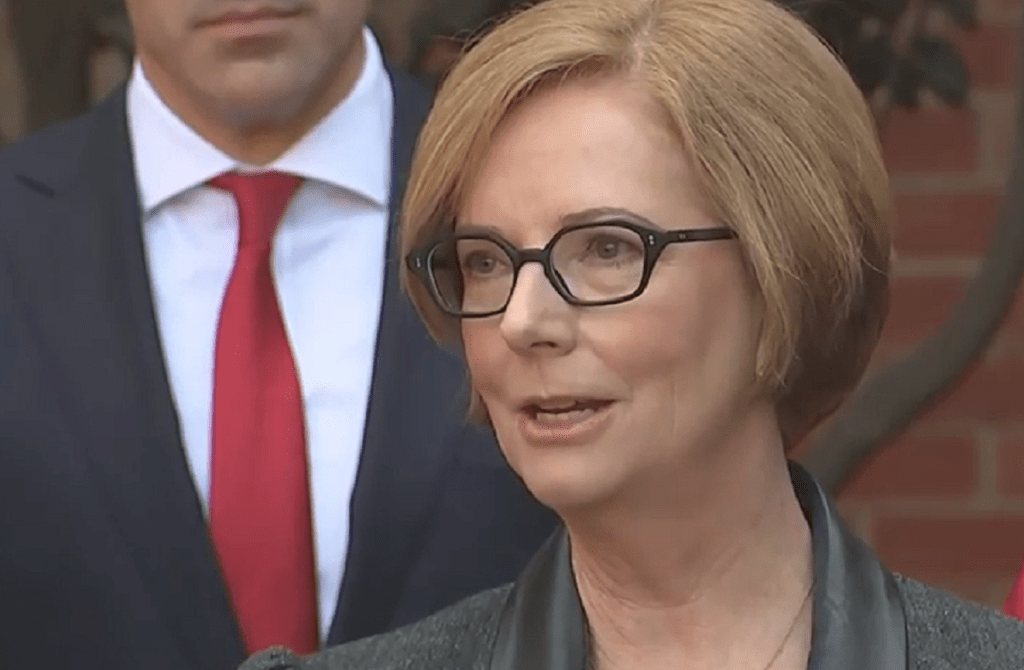A royal commission into early childhood education and care in South Australia has handed down its final report, making a number of ambitious recommendations including the rollout of universal preschool for three-year-olds.
The royal commission, led by former Prime Minister Julia Gillard, has made 43 recommendations for the early childhood sector, finding that all children benefit from two years of early learning before they start school.
The report notes that 1 in 5 children in South Australia arrive at primary school developmentally vulnerable.
The royal commission recommends a universal entitlement of 15 hours a week of preschool for three-year-olds in South Australia, and up to 30 hours of preschool for three-year-olds with greater support needs. It means both three and four-years-old would be entitled to universal preschool before they enter school, with four-year-olds already having access to it.
There is also a focus on expanding access to Out of School Hours Care (OSHC), and a recommendation to set a 20-year goal for reducing the number of children who are developmentally vulnerable when they start school from 23.8 per cent to 15 per cent.
“The science now tells us that investing in the early years – from birth to school entry – pays the biggest dividends, with ninety percent of brain development occurring in the first five years of a child’s life,” Gillard said upon the report’s release. “That’s why the best start lays the foundations for a better future.”
“Enabling everyone to have access to the transformative power of quality education has been the driving purpose behind much of my work life.”
Another key recommendation is for the establishment of a new state government body The Office for Early Years, with a mandate to increase the proportion of South Australian children who are developmentally “on track” when they start school.
Prior to the last state election, Labor promised it would implement universal preschool for three-year-olds, alongside its commitment to establish the royal commission into the sector, later appointing Gillard as commissioner.
The government has already accepted 13 of the report’s recommendations.
In the report’s foreward, Gillard wrote: “A shift this major will take time, policy energy and resources. Ultimately, the State Government will need to weigh the recommendations in this report and make decisions. Given my own experiences with the multiple demands and complexities of government, I understand and respect these processes.”
Jessica Rudd, CEO of The Parenthood, has welcomed Gillard’s report as a significant step to universal early childhood education and care in South Australia, saying it offers “holistic reform”.
“The Parenthood supports the recommended introduction of universal access to three-year-old preschool, recognising the important role that quality early learning plays in preparing our children for school and their future,” Rudd said.
“It’s significant that the report recognises the vital role that Out of School Hours Care (OSHC) plays in supporting working families. OSHC services are a cornerstone of assisting familie with their daily work-life balance while fostering children’s social and life skills.”
Rudd noted the need for greater focus on addressing workforce shortages in the sector.
“We must act urgently to address potential workforce shortages and childcare deserts. Planning for a well-equipped, appropriately rewarded workforce and ensuring access to services across regions must be a priority for policy makers.”
Early Childhood Australia CEO Sam Page said the royal commission’s report was a significant opportunity to make progress in “transforming early childhood education and care provision” while “embedding high standards for quality and equity”.
“The measures proposed to support developmental assessments and extend supports in preschool settings, while integral, should enhance rather than supplant quality early childhood teaching practice delivered by professionally qualified teachers,” Page said.
“It is pivotal that early childhood teachers and experts in early years pedagogy play an active role in shaping child assessment approaches and curriculum resources.”



